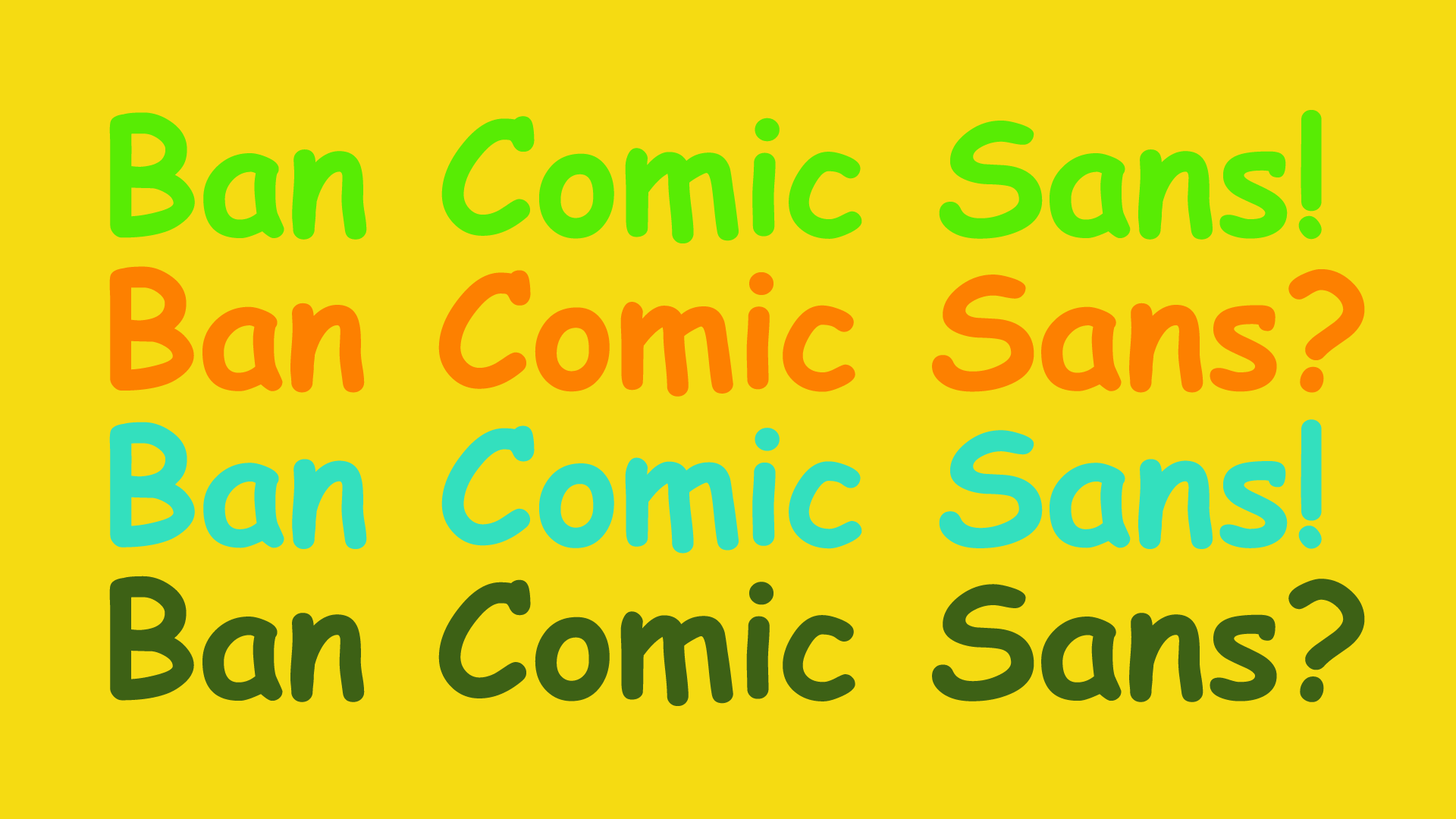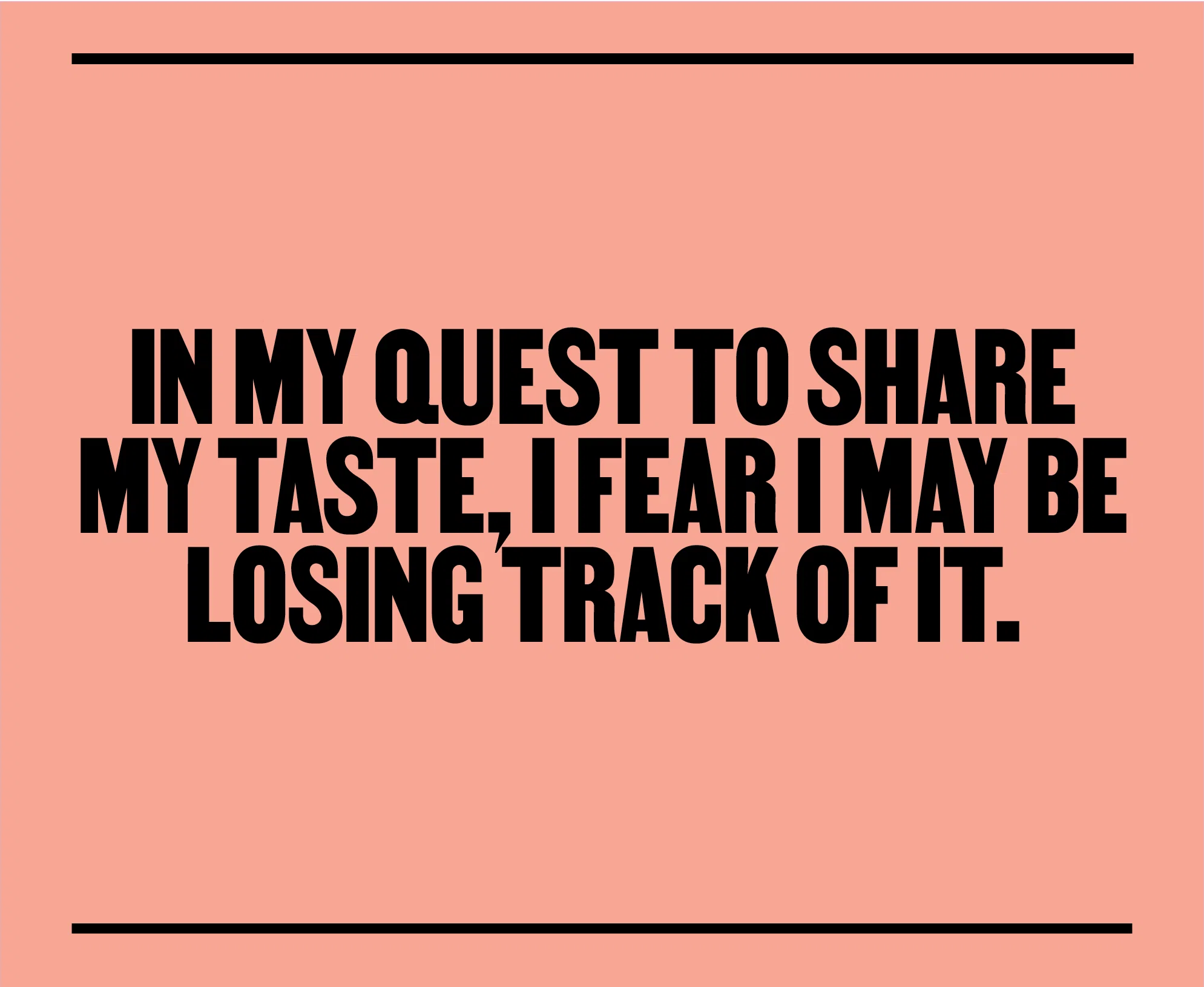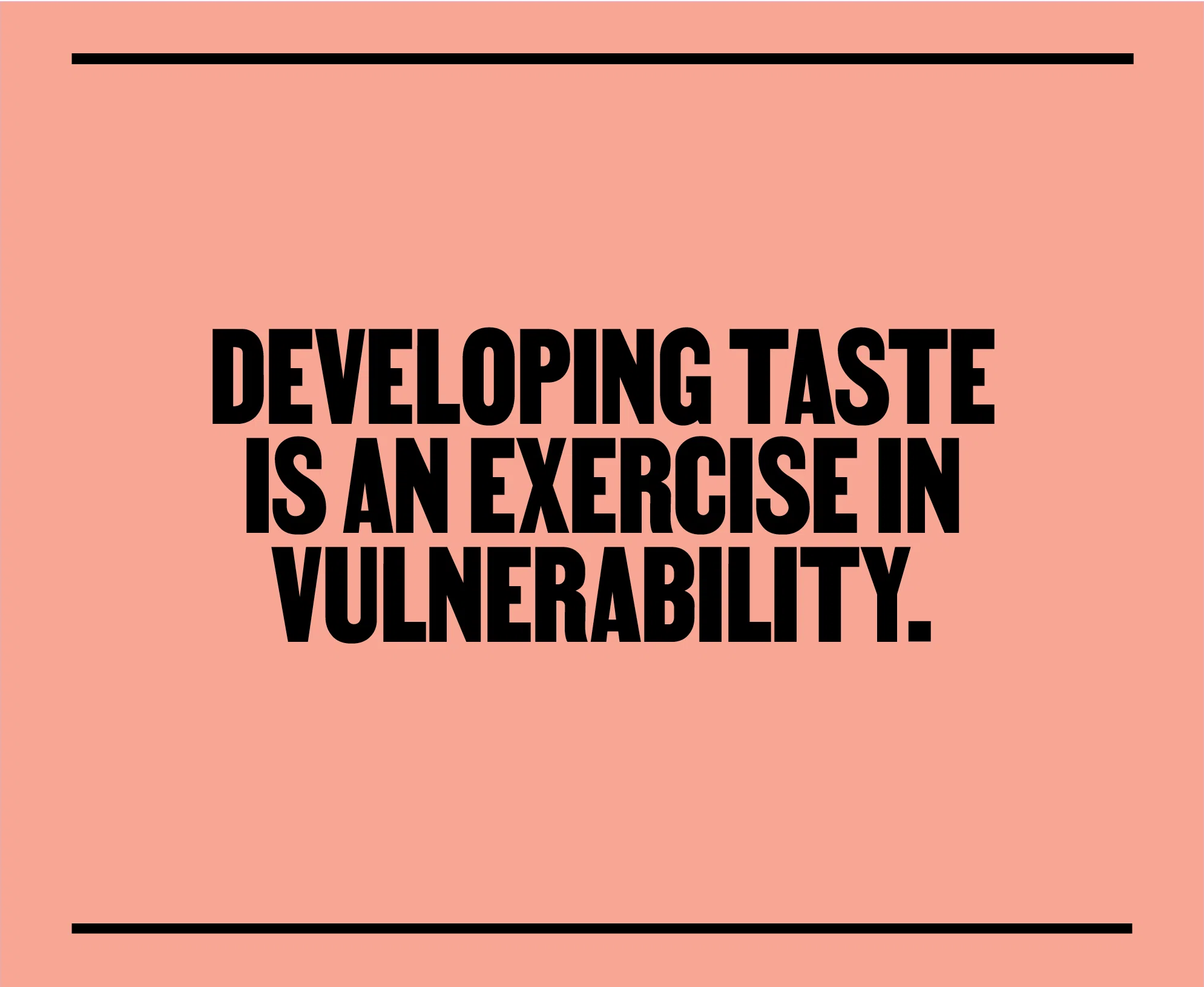
On Opinion, Taste, and Expertise
When having an opinion is more subtle than I thought
Published: 28 Mar 2024
Topics: Life, Work, Typography
TL;DR: Doug has finally learned to be less opinionated! Maybe!

Becoming an Expert
Recently, I listened to this Search Engine episode from PJ Vogt about video game design. At the 38:10 mark — after discussion of how to make “Rock, Paper, Scissors” a game of more than just luck — there was a section about experts having opinions on things they know a lot about. This quote by the host really stuck out to me:
“One of the things I’ve noticed about anyone who becomes an expert in anything—is their capacity to answer straightforwardly if something’s good or bad seems to diminish.” - PJ Vogt
This hit me as the opposite of what I would expect: the more knowledgeable you become, the more of an opinion you have, right? But interestingly, with more experience comes more understanding of the subtleties of what you know and how you communicate that expertise to others.
This idea struck me because, embarrassingly, I spent my first 15 years in graphic design priding myself upon my ability to make quick judgments on designs with black or white, either/or, binary opinions. The more succinct and loudly I could express my opinion, the more confident I became.
Sigh — it’s never fun to realize you’re wrong about something, is it?
As I have matured as a member of the design community (and more importantly as a member of humanity itself), I have greatly softened that approach and realize how immature and short-sighted it was. And yes, I can hear all of my friends and former colleagues laughing and I deserve it ;-)

Is Comic Sans Good or Bad?
Ah, yes: the most hated typeface in the world. Straight out of art school, I would have proudly worn the t-shirt that said Ban Comic Sans. These days, I’m mostly amazed how well Comic Sans works for its original use: being a font for text bubbles in comics.
On the other side of typography, we have the sacrosanct Helvetica, which apparently can do no wrong; but I never believed that. Helvetica is fine for some things, and bad for other things, and that’s okay. Perhaps the only typeface I still struggle with finding an appropriate use for is Papyrus…
On Taste & Vulnerability
Elizabeth Goodspeed’s recent article on AI and taste was shared all around the Internet, and for good reason. Typical of her writing, she pulled no punches and pointed out that all AI generated content is mind-numbingly stupid. This is not because it doesn’t appear professional, but rather because it lacks any taste.

Additionally, she talks about how sharing your own personal style is a vulnerable act and makes you wonder if you are losing your own style by sharing it. At my current age of 42, I’m having a lot of those feelings now. I have fewer strong opinions and the experience to understand there is a time and place for most everything — especially in something as ultimately unimportant as “branding”, “advertising”, or “design.”
Imagine Dragons
In another part of the episode the question, “is Imagine Dragons a great band?” spoke directly to me because my two sons (ages 7 & 9) recently have gotten into the band and we created a small playlist for our drives to and from school.
“Is Imagine Dragons a great band? I wouldn’t say so. A music critic though, would say, ‘Well, Imagine Dragons is a certain example of an early-aughts stadium pop band with some surprising electro-pop influences.’” - PJ Vogt
At first, I was against adding Imagine Dragons because they are a bit too cheesy and pop-y for my geriatric-millennial-emo taste, but honestly the playlist isn’t about me. So with a more open mind, I found a few of their songs to be catchy and a fun way to connect with my kids. Trust me, it won’t be long before they realize how uncool I truly am, so for now we are all singing along.

An Expert — Kinda…
So yes, after 20 years I can say that I am an expert in typography generally, and the Linotype specifically. Heck, I even have a job title on my business cards that says that.
But now, I add so many caveats to the statement: “I’m not a type designer”, “I have a weakness in my knowledge of script styles”, “What works for me may not always work for you”, “There are many other people with more specific knowledge than me…”
Because I’m learning: being an expert means continually recognizing all of the areas in which you are not, in fact, an expert after all.

